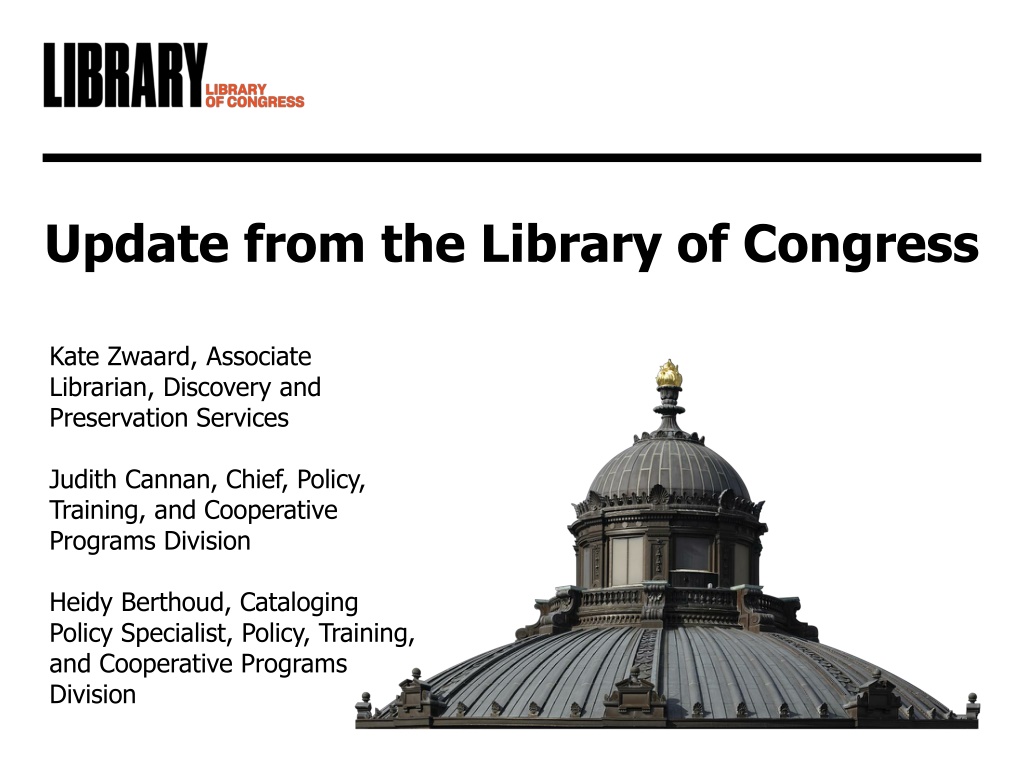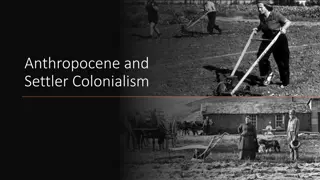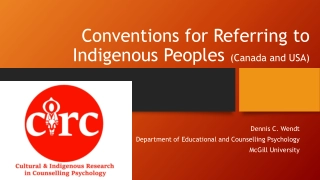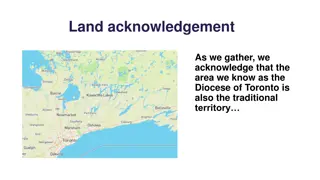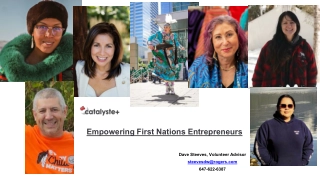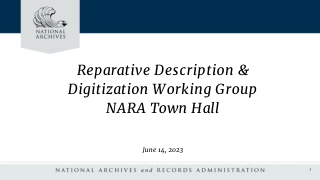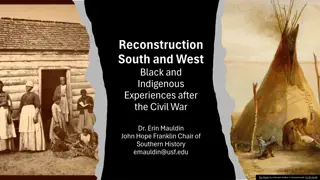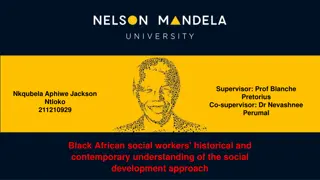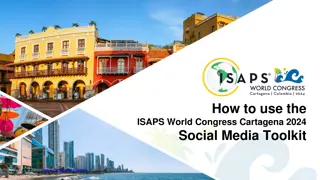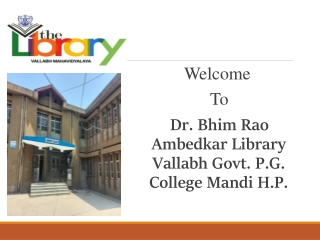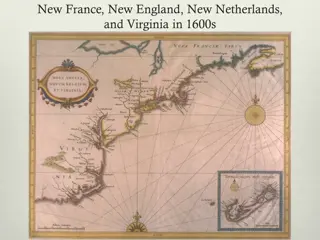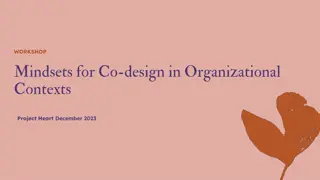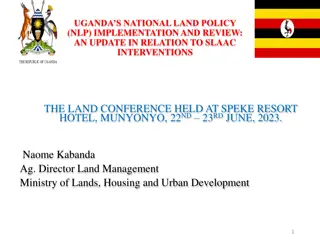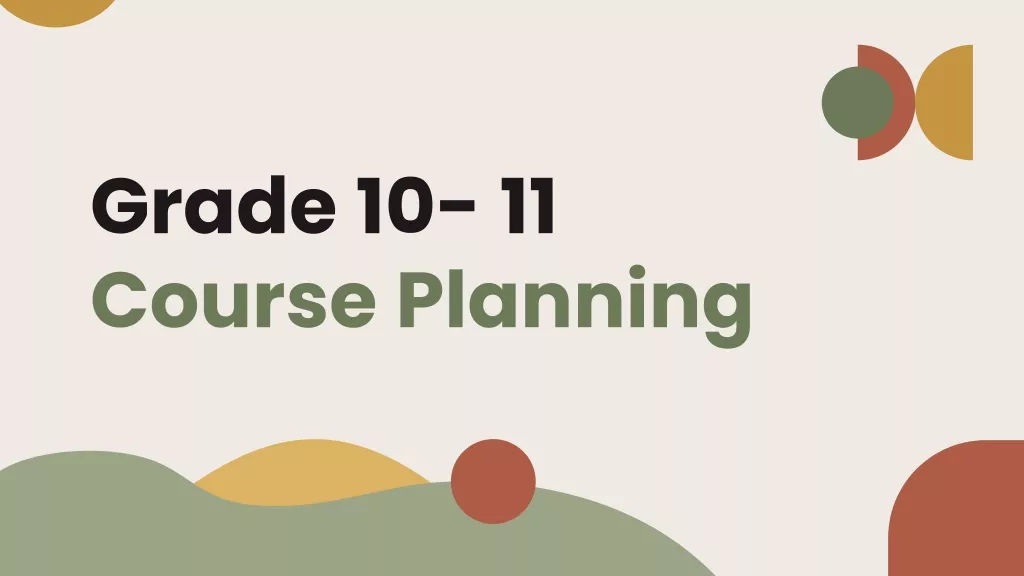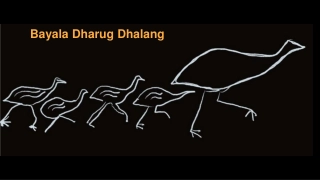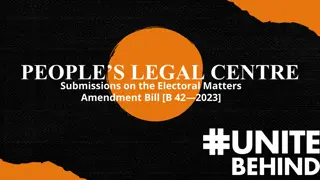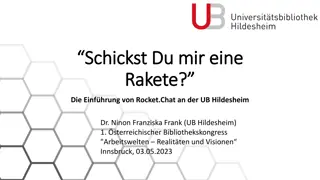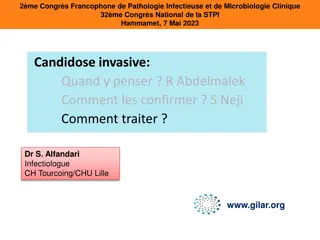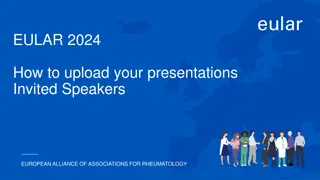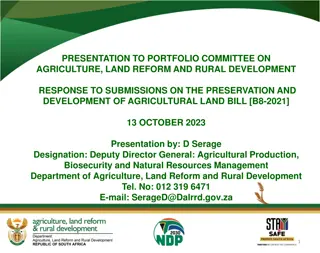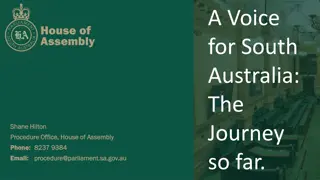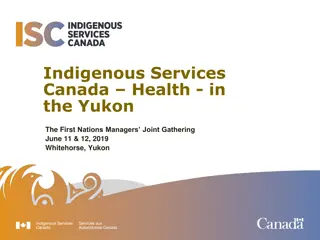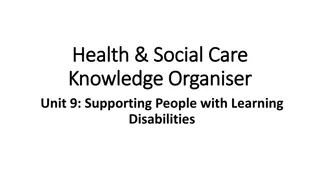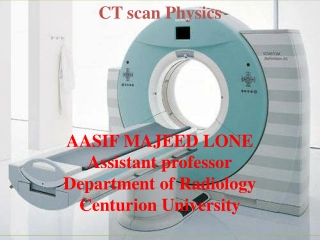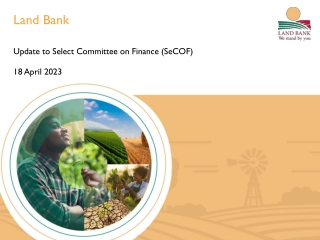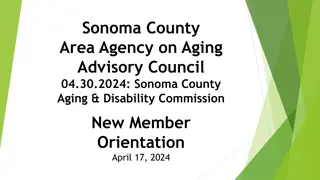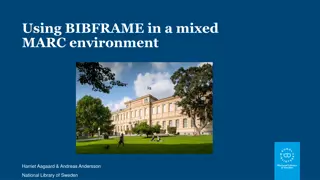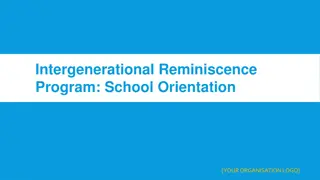Update from the Library of Congress on Indigenous Peoples' Land Acknowledgment and Terminology Challenges
The Library of Congress recognizes the importance of acknowledging Native American land and is committed to rectifying incorrect and offensive subject headings for Indigenous peoples. Challenges in terminology and necessary changes are addressed to show respect for Native cultures.
Download Presentation
Please find below an Image/Link to download the presentation.
The content on the website is provided AS IS for your information and personal use only. It may not be sold, licensed, or shared on other websites without obtaining consent from the author. Download presentation by click this link. If you encounter any issues during the download, it is possible that the publisher has removed the file from their server.
Presentation Transcript
Update from the Library of Congress Kate Zwaard, Associate Librarian, Discovery and Preservation Services Judith Cannan, Chief, Policy, Training, and Cooperative Programs Division Heidy Berthoud, Cataloging Policy Specialist, Policy, Training, and Cooperative Programs Division
Native American Land acknowledgement Located near the confluence of the Potomac and Anacostia rivers, the Library of Congress is built on land that is part of the homelands of the Nacotchtank (Anacostan), Piscataway Conoy, Pamunkey, and Manahoac people. Indigenous peoples, including members of these nations, still live and practice their teachings and cultures here today. The Library honors these stewards of the land, and all of the Indigenous peoples of the United States, who are the first peoples, including those in the region where the Library now provides its services. The Library works to interact with these groups in a responsible and respectful way. Native American Land Acknowledgment Library of Congress https://www.loc.gov/about/history-of-the-library/native-american-land-acknowledgment/ 2
The Library of Congress recognizes that many of its subject headings for Indigenous peoples living within the United States and bordering countries are either incorrect or offensive. The Library is committed to rectifying these errors and is determined to do it correctly with respect for Indigenous peoples, their customs, culture, and languages. Library of Congress Evaluation of Headings for Indigenous Peoples Library of Congress official communication https://www.loc.gov/aba/cataloging/subject/Evaluation-Headings-Indigenous-Peoples.pdf 4
Challenges and ripple effects Example: Proposed change from Iroquois Indians to Haudenosaunee (North American people) Requires change to three broader terms: Indians of North America $z Canada, Eastern Indians of North America $z East (U.S.) Iroquoian Indians Requires decision to introduce new LCSH qualifier: (North American people) 5
Complex terminology Indigenous Services Canada; Crown-Indigenous Relations and Northern Affairs Canada Terminology: First Nations, Inuit, and M tis; groups are collectively called Indigenous peoples Indian status, and why the term Indian Canada United States Bureau of Indian Affairs Terminology (people): American Indians, Alaska Natives Terminology (communities): Indian tribes, Alaska Native villages Instituto Nacional de los Pueblos Ind genas Terminology: pueblos ind genas, or Indigenous peoples Mexico 6
U.S. terminology Persons belonging to the tribal nations of the continental United States (American Indians) and the tribal nations and villages of Alaska (Alaska Natives) an American Indian or Alaska Native person is someone who has blood degree from and is recognized as such by a federally recognized tribe or village American Indian and Alaska Native (AI/AN) 7
U.S. terminology All Native people of the United States and its trust territories (i.e., American Indians, Alaska Natives, Native Hawaiians, Chamorros, and American Samoans), as well as persons from Canadian First Nations and Indigenous communities in Mexico and Central and South America who are U.S. residents Native American 8
U.S. terminology Sovereign nations (variously called tribes, nations, bands, pueblos, communities, and Native villages) that have a formal nation-to-nation relationship with the United States Government Also called federally recognized tribes Tribal nation 9
Complex relationships Unrecognized tribes Extinct tribes State tribal recognition 574 federally recognized tribes 10
There are major differences, however, when the term American Indian is used in an ethnological sense versus its use in a political/legal sense. The rights, protections, and services provided by the United States to individual American Indians and Alaska Natives flow not from a person s identity as such in an ethnological sense, but because he or she is a member of a federally recognized tribe. Who is an American Indian or Alaska Native? Bureau of Indian Affairs 11
Multiple identities Political/legal identity Confederated Tribes of the Colville Reservation (federally recognized Indian tribe in Washington State) Political/legal identity as citizens of the Confederated Tribes of the Colville Reservation Ethnological identity Confederated Tribes of the Colville Reservation is not an ethnicity in and of itself, nor do members share a single ethnicity Tribal nation is made up of Twelve Bands: Chelan, Chief Joseph Band of Nez Perce, Colville, Entiat, Lakes, Methow, Moses-Columbia, Nespelem, Okanogan, Palus, San Poil and Wenatchi Ethnological identity as relating to one or more of the Twelve Bands 12
Progress and future plans 13
Progress in updating headings Completed: Maori (New Zealand people) to M ori (New Zealand people) Blacks to Black people Slaves to Enslaved persons Removing inappropriate usage of primitive in art/architecture and anthropology headings Proposed/in progress: Mormons to Latter Day Saints Gays to Gay people Racially mixed people to Multiracial people 14
Program Analyst Provides consultation and liaison services Performs research and analysis work Project development work Analyzes existing headings for accuracy Proposes changes Identifies gaps in knowledge and researches solutions Plans and oversees projects Prepares procedural documents Coordinates complex research and development activities Provides expert subject and technical advice within the Library of Congress Seeks community support and advice Represents the Library in the national and international community and other organizations 15
Community engagement Guiding principle: Nothing about us without us Indigenous Headings Consultants Group (IHCG) Community of experts with demonstrated subject and technical skill Centers Indigenous knowledge and experience when seeking solutions Group of 6-10 members: Representation from different kinds of libraries Representation from different regions of the United States and its bordering countries Goal: All changes will be made in consultation with the affected community 16
Until the Program Analyst is hired and the Indigenous Headings Consultants Group is formed, LC will continue to accept new and change proposals relation to Indigenous peoples. Proposals must clearly document consultation with the affected community. If there is no evidence of consultation, the proposal will be rejected. Library of Congress Evaluation of Headings for Indigenous Peoples Library of Congress official communication https://www.loc.gov/aba/cataloging/subject/Evaluation-Headings-Indigenous-Peoples.pdf 17
Thank you! Email: kzwa@loc.gov; jcan@loc.gov; hberthoud@loc.gov 18
